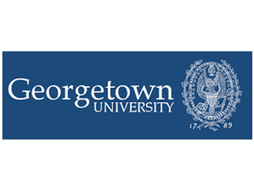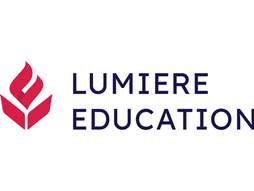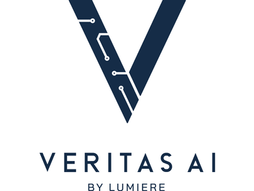SHSS (Summer Humanities and Social Sciences Program) at Williams College - Is It Worth It?
As top colleges work to increase their number of students from underrepresented backgrounds in academia, many have taken steps to aid admitted students’ transition to college. Schools such as Princeton, Harvard, UChicago, Stanford, UPenn, Carnegie Mellon, and Emory have implemented pre-orientation programs, where students from underrepresented backgrounds are able to move in early and attend specialized programming to welcome them into their new homes.
Williams College’s Summer Humanities & Social Sciences Program (SHSS) is an example, offering incoming Williams freshmen an all-expenses-covered, academically-oriented program with a wide array of activities, events, and workshops that cater specifically to students pursuing the humanities. If you’re a new Williams admit from an underrepresented demographic, you might be wondering whether this program is worth attending before your first semester begins. In this article, we’ll run through the main features of SHSS: program introduction and structure, eligibility, key dates to keep in mind, and material you’ll cover as a participant.
We’ll wrap up with a short evaluation of SHSS overall, giving an overview of the most essential information to know as you consider joining SHSS.
What is Williams’ Summer Humanities & Social Sciences Program?
The Summer Humanities & Social Sciences Program is exclusively designed for incoming freshmen at Williams. Geared toward students whose previous academic background may have lacked some of the opportunities or resources available to others, SHHP attendees will gain an early introduction to Williams to ease their transition into college life.
As you might guess from SHHP’s name, there is a strong emphasis on humanities- and social sciences-oriented academic work — the biggest component of your experience will take the form of four seminar-style courses, where Williams professors will introduce you to the specialized coursework present in their liberal arts curriculum.
Scholars will also share experiences including seminars and guest lectures with Williams professors, writing skill development, enhanced academic advising, connecting with current Williams students in affinity groups, and recreational cultural activities.
Who is Eligible for SHSS?
Williams describes their criteria for SHSS participants as “students who have expressed an interest in the humanities and/or social sciences and whose family background makes them underrepresented in the academic world.” Unsure if this applies to you? Williams notes that SHSS-eligible scholars are determined by the Admissions Office; the invitation list includes “any first-generation college student and/or anyone who self-identifies as African-American, Latina/o, or Native American.”
Williams does not provide any more detailed criteria for their invitation list, though they do note that the majority of invited students are also receiving financial aid. In order to fully support accepted students, the Summer Humanities & Social Sciences Program is completely funded by Williams, including program tuition, a private room in one of Williams’ most-desired dorms, all meals, and activities.
Does this description sound like you? Interested in hearing how you can join? Whether you’ve already been accepted to Williams or are still anxiously waiting to apply, here’s what to expect as a prospective SHSS scholar.
How Do I Apply to SHSS?
If you’ve been accepted to Williams (or are still working on your college application journey), you’re probably all too familiar with the intensive requirements most applications demand. Luckily, SHSS has an incredibly simple process to apply, free from any lengthy essays or letters of recommendation. The streamlined application process consists of a single online form, in which you provide basic information about yourself (name, email, and phone number), specify your top academic interests, and write a short paragraph about your interest in SHSS.
However, note that there’s one particularly tough aspect of the SHSS application process. Because of the intensive structure of the program, Williams has far more admitted students who meet these criteria than can be accommodated in SHSS, which only takes 24 incoming students. Consistent with the program’s emphasis on equity and inclusion, the 24 SHSS scholars are chosen through a random lottery. Essentially, all eligible students who complete an application have an equal chance of attending SHSS — the decision ultimately comes down to whether you’re one of the lucky 24 students chosen. On the bright side, you won’t need to worry about whether your essay or academic profile is more compelling than the others. And, the turnaround time for receiving decisions is quite more rapid than with other academic applications, as the lottery bypasses the need for careful review of multiple lengthy applications.
What is the SHSS Timeline?
SHSS’s timeline can be broken into three components: gaining eligibility, completing an application, and ultimately participating in SHSS.
Acceptance to Williams: Of course, your status as a student with an underrepresented identity isn’t something that will happen over the course of this process. The only additional requirement for SHSS eligibility is to be accepted to Williams as an incoming freshman. If you’re ready to commit to attending Williams if accepted, you can apply in the binding Early Decision round by November 15th and receive a decision by mid-December, or submit a Regular Decision application in early January with decisions announced at the beginning of April.
Applying to SHSS: Once you’ve committed to Williams, the online SHSS application must be submitted by May 3rd at the latest. Williams states that they release decisions by email “as quickly as possible”, but there is no specified date for when you’ll be informed about your acceptance or rejection.
Participating in SHSS: A rigorous five-week program, SHSS begins in the middle of the summer so as to not overlap with general orientation programs and the start of the academic year. Though exact dates may vary, this year’s program runs from June 24 – July 29. Overall, you can be confident that as an attendee you’ll move into Williams at the end of June, and stay on campus till the semester begins.
What Would I Study At SHSS?
We’ve noted the academic rigor of SHSS, as well as the additional workshops and lectures that students attend. Here’s a more detailed look at what you can expect to learn at Williams.
Small Seminar Courses
SHSS attendees will participate in four different courses spanning topics in the humanities and social sciences. These specialized courses (and the professors who lead them) vary each year in terms of academic discipline, department subfield, and topic. Faculty leading SHSS courses are able to develop the seminar based on their primary academic interests and research areas, leading to an incredibly unique selection of offerings. Though you’ll only enroll in four, there are typically at least five courses to choose from, ensuring you’ll get some autonomy in what your pre-college study will include.
To provide a sense of what you might study as an SHSS scholar, here’s a quick breakdown of the courses.
The Economics of Public Policy: Taught by Sara LaLumia from the Department of Economics, this course employs methods from microeconomics and macroeconomics to study the role of the U.S. government in the national economy, dwelling on contemporary issues such as climate change and income inequality.
The Self in Society: Christina Simko from the Department of Sociology leads this course on the engagement of subjectivity and identity with structures of power, drawing from texts in cultural sociology and critical theory.
Dolls: Professor of German Christophe A. Koné teaches this innovative course, in which students think about the broader cultural role of dolls beyond simply toys. Students will consider the implications of the anthropomorphic form of dolls — both miniature and life-size dolls — and their myriad appearances in literature, visual art, and performance.
Introduction to Black & White Analog Photography: Taught by Art professor Daniel Goudrouffle, students will study the physical mechanics and methods of Analog Photography while developing their own skills in the medium, eventually working towards an independent photography project and analysis of their work.
Contemporary Mexican Cinema and the World: Ricardo Wilson of the English Department combines the study of writing textual analyses on the medium of film, dwelling predominantly on topics of Mexican history and identity while simultaneously considering the work of Mexican filmmakers not directly linked to the country of Mexico or their national identity.
Though you will be completing coursework comparable to formal Williams classes, you will not receive credit for any classes you take at SHSS, and they will not appear on your Williams transcript. Nonetheless, there will be an evaluation of your work by professors — you’ll receive grades on each assignment and an overall grade for all four courses you take. Though it may seem unnecessary to deal with grading for a non-credit-earning course, this is an intentional choice. Since SHSS intends to prepare students for college-level academics, these grades are intended to provide a benchmark for your evaluation in official courses.
Beyond coursework, your study will also center on developing college-level writing skills, workshops on research skills using Williams’ library and online resources and interacting with professors from varied sub-disciplines of the humanities and social sciences.
Though you can expect rigorous academic study to comprise the majority of your experience at SHSS, you won’t only be exposed to this side of Williams! Beyond connecting with your peers – both other pre-frosh and current students – you’ll go on trips to visit museums, theater and orchestra performances, and other activities in the Berkshire area. There’s also a “summer camp” aspect to SHSS – Williams also makes sure to mention the pizza parties, swimming and sports games, and casual social events that provide a break from the often-rigorous programming.
Pros and Cons of SHSS
As you decide whether to apply to SHSS, here are a few pros and cons to keep in mind as you make your choice:
Pros
You’ll build community early: After spending five weeks together, you’ll form a tight-knit group within SHSS, consisting of students who may be facing similar concerns or worries as they begin college.
You can network with professors: If you’re hoping to connect with top academics in your desired field of study, participating in seminar discussions and small workshops together is an ideal way to start building a relationship.
You’ll get a low-stress preview of coursework: By taking graded courses with no actual impact on your transcript, before official classes begin you’ll already have an idea of the content and assignments to expect, the grade range you might fall into, and your academic strengths and weaknesses (as decided by your future professors).
Your participation is completely free: Unlike many summer programs with significant fees and limited financial aid, Williams covers all aspects of your participation in SHSS — you might actually save money by participating in this incredible program.
Cons
Program admissions are unpredictable: With only 24 student slots available for many more applicants, it’s hard to secure a position in SHSS. While the lack of extra application materials will be a relief, it can be stressful to know that your acceptance is purely based on luck rather than a stellar application.
You’ll have a short “traditional” summer: As the summer before college will be the last one in your home environment free from expectations of internships, extra courses, and research, it may feel disappointing to have it end before the beginning of July. If this is of high importance to you, moving into college five weeks early may not feel worth it.
The “college academic experience” is no exaggeration: Despite all of the valuable elements of SHSS’s coursework we’ve discussed, it’s important to know about the notorious intensity of assignments you’ll be given. Classes will all contain multiple written assignments and presentations, and weekly readings often reach hundreds of pages. Though this is absolutely something to expect as a Williams student, if you’d rather take a break from academics before experiencing this workload, you should keep this in mind.
Our Review
In sum, the Summer Humanities & Social Sciences Program is an unparalleled opportunity for students of underrepresented backgrounds to build community and get an early look at student life at Williams before the semester begins. It’s truly unique among related pre-orientation opportunities for its extended programming (many others last a week or less!), disciplinary focus, and combination of coursework, advising, and traditional orientation bonding experiences. Though lottery-based admissions for a very limited number of students makes your likelihood of participation unpredictable, the simple application process means that it won’t take much extra effort to apply. (If you’re on the fence, it may be worth submitting an application just to see!) Though SHSS is definitely not geared towards those who want a relaxing summer before beginning college, incoming Williams freshmen who can’t wait to begin college-level study and are excited at the prospect of early exposure and preparation should take advantage of this incredible opportunity!
One other option – Lumiere Research Scholar Program
If you are interested in doing university-level research, then you could also consider applying to the Lumiere Research Scholar Program, a selective online high school program for students that I founded with researchers at Harvard and Oxford. Last year, we had over 4000 students apply for 500 spots in the program! You can find the application form here.
Also check out the Lumiere Research Inclusion Foundation, a non-profit research program for talented, low-income students.
Stephen is one of the founders of Lumiere and a Harvard College graduate. He founded Lumiere as a Ph.D. student at Harvard Business School. Lumiere is a selective research program where students work 1-1 with a research mentor to develop an independent research paper.
Image Source: William's College seal




